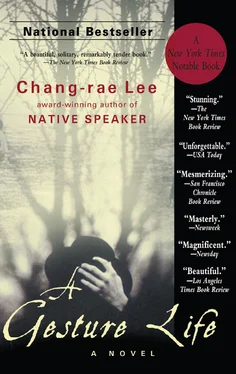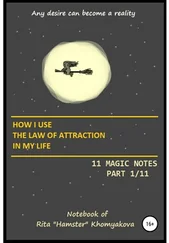There is silence between us, not so much because I’ve said anything profound or true but that we’ve gone much further in the conversation than either of us had anticipated. We both nod, trying to say how we appreciate the moment, although it pains me to think that the Hickeys have discussed the possibility that I might have made misrepresentations when I sold them the store in a neat and ordinary sale-by-owner. The last thing Mrs. Hickey needs is to wonder if I have had a part in their lamentable slide into misfortune, rather than focusing on the care and well-being of her son, and supporting her deeply stressed husband. With Sunny Medical Supply, I can say that I had no reservations at all of their prospects, except of course their own inexperience in general and Mr. Hickey’s stubbornness in particular. Mr. Hickey can always contend that keeping certain contracts with the area hospitals was in fact an impossibility, given the immense buying power of the national franchises which had recently opened, and that I purposely overstated the relationship and loyalty I’ve enjoyed with those hospitals. But I’ve gone over this ground too many ways, and each time I conclude just as Mrs. Hickey has, which is that not only should one always be wary when buying into a situation, but once committed, graciously accept all realities.
Which, presently, is that I should find Liv’s metallic green Saab and so make my way home. Mrs. Hickey offers to walk me all the way to the parking lot and to the car itself, but I refuse, saying how I’m disturbed that I’ve already taken time away from her son. Again I shudder with the thought of having to see him with her there, her mother’s presence somehow an added burden to me, as if she might spy something damning in my face. She escorts me instead to the automatic doors, and we make tentative plans again, contingent upon this and that, all of it contigent still upon Patrick and Patrick alone, and the sad and peculiar notion of waiting for a heart.
One realizes, of course, what it will mean when a heart does arrive, that another young boy or girl has come to an awful end, and it makes me think again how the conservational laws apply to human beings and their endeavors as well as to energy and matter, and that for us, those laws are often ironical and cruel. I recall Fujimori posting me from Borneo, where he and Enchi had been assigned, writing about our friend’s death. I still have the letter and read it sometimes for no burning reason.
“We could not find much of his body, Jiro. It was simply not present anymore. A corporal found a thumb some sixty meters from the spot where Enchi was last standing, but there had been others who were badly hurt and we couldn’t be sure if it was his. He was the only one killed, somehow. There was nothing left of him. Nothing else of shape, just tiny bits of flesh on the ground and most awfully, up in the branches of the trees. The shell must have landed right between his feet, and he disappeared. The night before, Enchi had been going on and on at the officers’ club, drunkenly, of course, about living here forever in this tropical paradise. He was obviously talking against his fear of death but he was doing so with great feeling and humor, and to a man we wanted to believe him. Later that night, after a service for him and then drinking alone, I walked past the spot. It was perfectly normal, having been cleared earlier. But I heard a rustle and I looked up into the trees directly above, and in the light of the moon I could see the tree limbs filled with small birds, what seemed like hundreds and hundreds of them. They were happily picking at the leaves and branches, and rather than feeling horror for our good Enchi, I began to bellow like a cow, and I almost fell down.”
Fujimori possessed a dark sensibility, which wasn’t always easy for me to appreciate. If I met him today, I’m not sure what I would say to him except to offer the standard greetings and inquiries about his work and spouse and family. It’s not that I would feel cold toward him, but his personality was such that he always made you consider the oddest aspects of events and happenings, and so you never felt fully comfortable saying the most innocent things, for worry how he might interpret or reobserve them. For example, I have to consider how he might cast his eye on me now, after having spoken to Mrs. Hickey and once again excused myself from spending time with her dying son. How might he describe me as I step limpidly across this wide parking lot, holding a fading bouquet of my own? What would he say if I told him I had never married, and that the girl I adopted had decided to run away rather than live with me in comfort? And would he devilishly ask why I had been so careless with the fireplace in my most precious home, as if I’d wanted to bring everything down in a self-made conflagration?
The sun has come out from a break in the clouds, and Liv has retracted the convertible top to her brilliantine emerald car. She and Renny are sitting in the front seats, backs against their doors, conversing civilly and politely, without their usual gesticulations. I slow down almost to a halt, the pace surprisingly comfortable for me, this inching septuagenarian shuffle. This is the first instance I’ve had of feeling my age, which does not seem so beleaguering a notion but rather a strangely comforting one, as if a voice inside me is trying to proclaim, I accept. I accept. It’s the way one relents when walking the last half-mile of a hike in light rain, to taste the sweet of the water on your face, and not just feel its chill. Why senescence should not have its hidden charms….
Renny Banerjee smiles wide now, and though I can’t hear what they’re saying, it’s clear they’re getting along, with Liv extending her hand across the center armrest, drawing invisible curlicues on the shoulder of his bucket seat. The back is a gaudy parade float of lilies and carnations and roses in varying states of bloom and wither. He sees me approaching and immediately gets out and skips around the car, taking my forearm to guide me to his seat. Liv thanks him and turns on the ignition, and Renny neatly hurdles the fender behind her, snuggling himself into the backseat nest of petals and stems.
“So, where am I taking you, Mr. Banerjee?” Liv says blithely.
He answers, “I thought we were going to lunch, after dropping off the Doctor.”
“Who said anything about lunch?” she says, quickly turning around.
“You did, going on about the new decor at Sffuzzi’s. I thought you were sending me a message that I should take us out.”
“Isn’t he arrogant, Doc?” Liv replies, telling me more than asking. She’s ignoring Renny, her eyes set low. “He implicates himself in everything.”
“I’m like you that way, Liv,” Renny murmurs from behind me, a sudden warmth softening his voice.
“I guess you are, Mr. Banerjee.” Liv sighs, backing the car out. She puts it in forward gear and we begin to pull away. “Too bad for you.”
From the hospital to home, it’s a straight shot to the northeast on the narrow, curbless two-lane that snakes in tight up-and-down turns beneath the overhanging trees. The dark green canopy is rafter-like over us, a shimmering, tattered vault of cover. Liv keeps asking if we should stop and put up the roof of the convertible, as there is a fresh edge to the air, the sky depthlessly clear, but it feels so good to me, the rushing air and the speed of the open car and the oaty tang of just-cut grass. I know again why I favor it so much here, how I esteem the hush of this suburban foliage in every season, the surprising naturalness of its studied, human plan, how the privying hills and vales and dead-end lanes make one feel this indeed is the good and decent living, a cloister for those of us who are modest and unspecial.
Читать дальше











![William Frith - John Leech, His Life and Work. Vol. 1 [of 2]](/books/747171/william-frith-john-leech-his-life-and-work-vol-thumb.webp)
![William Frith - John Leech, His Life and Work, Vol. 2 [of 2]](/books/748201/william-frith-john-leech-his-life-and-work-vol-thumb.webp)